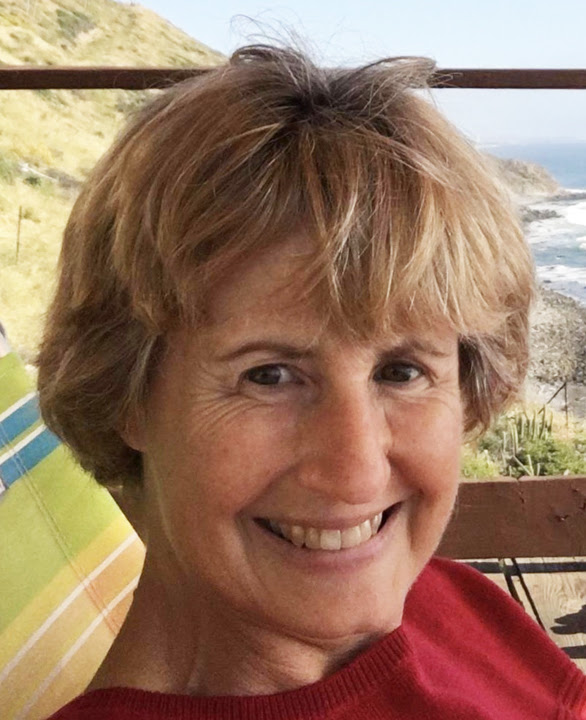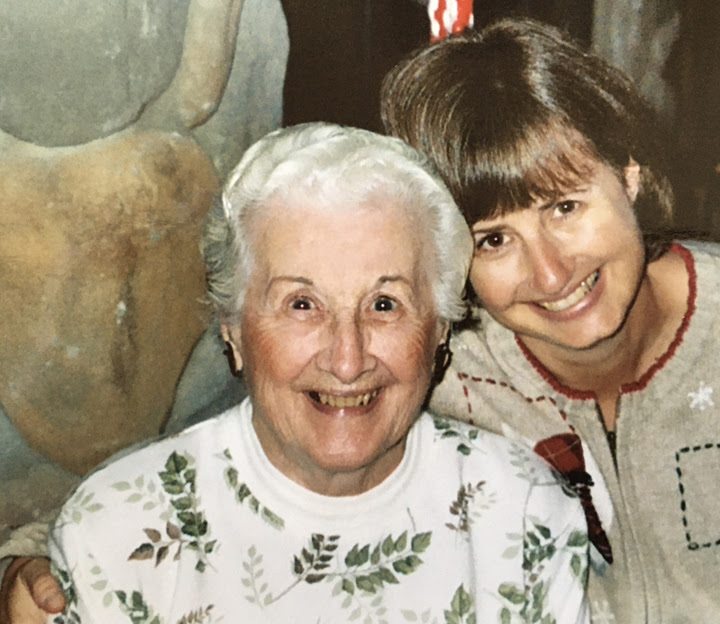Writing a memoir is a big undertaking. And tackling that job all alone can make it feel twice as big!
Luckily, helpers are out there. Whether you call these folks personal historians, memoir coaches, or developmental editors, all of them can help with various parts of the writing process.
This month I wanted to introduce you to a personal historian who helps would-be memoir writers turn their memories into books. Here’s Lisa Lombardi O’Reilly, who’ll share how her “heart for helping” led her into this field, and what she’s learned in the process!
* * * * * * *

How did you get started helping other people do their oral histories?
Lisa: My career as a personal historian/biographer was a natural spinoff from researching my own family tree. After twelve years of gathering data, it began gnawing on me that I would never gain a full appreciation of who my ancestors were. Sure, I’d discovered where they came from, where they lived, when they were born and died, and how they began their own families. But I had no clue what they felt about it all. Or how they overcame struggles. Or what brought them the greatest joy.
At that time, thirteen years ago, I had one grandparent remaining on this earth — my dear maternal grandmother, who had always been a wonderful part of my life. I don’t know how the thought initially came to me, or why I thought I could do it, but I asked if she would allow me to interview her about the events in her life, record and transcribe her stories, collect photographs and other memorabilia, and have it all printed as a book. She was game, though she wondered why anyone “would be interested in a bunch of old stuff”! The entire process was so fulfilling for both of us – from first interview to placing her completed book into her lap – that I decided I’d try to do the same for other people. It was one of the best decisions I’ve ever made, personally and professionally.

What do you wish you’d known then that you know now?
Lisa: I’m not sure there is anything I wish I knew then that I know now. I loved learning along the way. I’m a “soup to nuts” personal historian, meaning I handle all aspects of the project. From interviews, transcribing, forming the narrative, designing the layout, to publishing the book – I love having my hands on it all, and giving my creative side a place to flourish. I do wish I came to this work earlier in my life, instead of in my late forties, but I can’t really regret that. I think having acquired life experiences in the meantime helped me feel more qualified for the work.
What have been the biggest hurdles in being a “memoir coach” or “life story helper”? What should people know about the process before they start?
Lisa: The hurdles have been few, and that has a lot to do with the community in which I found myself. Once I decided to pursue this work, I started thinking about what to call myself. “Biographer/Autobiographer/
Not everyone wants to attempt doing this work themself, whether collecting their own stories or those of a loved one. It’s not easy. It’s a lot of work. It’s overwhelming. And sometimes, maybe even most of the time, a narrator does not open up as much to a relative. Or the narrator will skip parts of stories because they know the story has been heard before. Or they are embarrassed/reluctant to reveal intimate or painful details. A ‘stranger’ is an asset in scenarios like that.
How can both parties avoid disappointment and hurt feelings as they work on a book together?
Lisa: The best way to avoid disappointment during the process is to manage expectations as much as possible from the beginning. I share a sheet with my clients in a preliminary meeting, outlining how we will proceed — from interviews to a completed book. It is also important to ask clients what their intentions are for their book. Most people I have worked with only want copies for their family and friends, but some want to make it available online for the public to purchase. This is an option, but it is important to discuss who would be conducting any marketing for the sale of their book. I do not do marketing – that task is left to the client, or for them to hire someone.
What’s been your greatest joy in doing this special work?
Lisa: There are many joys to this work. It is a wonder, really, to be invited as a stranger into someone’s home to hear their stories. And I can’t recall ever feeling like a ‘stranger’ past our first meeting. During our time together, my brave clients reveal to me their dearest possession – their lives. Good, bad, funny, sad, beautiful, horrendous. How they felt, how they survived, how they loved. To me, that alone is an honor and privilege, being the conduit to capture and preserve it all, like I wished I had been able to do for my own ancestors.
But nothing gives me greater joy than placing a completed book into out-stretched hands. Knowing they will have it not only for their current family, but also their future descendants. Their children, grandchildren, and forever-greats will never have to wonder where they came from, what they did, how they suffered, and how they prevailed. As we personal historians like to say – we are saving lives, one book at a time. How do you top that?
If you’d like to get in touch: Lisa Lombardi O’Reilly, Personal & Family Historian
lloreillybooks@aol.com
www.yourstorieswritten.com
www.facebook.com/lisa.
